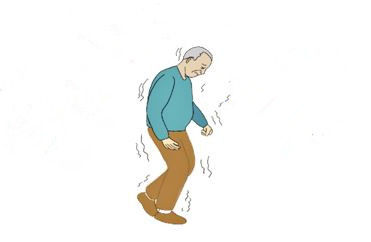This article is reprinted from: Health Times
(Xu Xin, Deputy Chief Physician, Department of Neurosurgery, PLA General Hospital) Parkinson’s disease is a common neurodegenerative disease among middle-aged and elderly people. The number of patients is increasing. Early Parkinson’s patients are prone to problems with limb stiffness and uncoordinated movements. In the late stage, it will also lead to difficulty in taking care of themselves, causing certain psychological damage and increasing the risk of depression, which not only affects treatment, but also has a greater impact on the family.
 early morning picture
early morning pictureSo, will the body feel anything before Parkinson’s disease comes? What? The answer is: yes.
The vast majority of patients with Parkinson’s disease have early sleep problems. Many elderly people feel that sleep loss is relatively normal, but after suffering from Parkinson’s disease, not only the sleep time is reduced, but the quality of sleep is also reduced. Insomnia, daytime sleepiness, irregular sleep, physical discomfort, and long-term inability to sleep often occur. Remission can exacerbate the development of Parkinson’s disease.
Tremor is often one of the earliest and typical manifestations of Parkinson’s disease. Patients will feel inexplicable tremors, and they cannot control it or stabilize the shaking of their hands, especially in a quiet state or It is more likely to occur when the muscles of the whole body are relaxed. Instead, the tremors lessen after activity. The tremor and stiffness in Parkinson’s disease patients will progressively worsen, and the movements will become slower and less frequent.
The patient may also experience stiffness in the limbs and slow movements. This kind of slow movement is not only in walking, but also in all aspects of life, such as writing, eating, dressing, etc. If you do not pay attention, it will lead to the development of the disease and cause great damage to the body. Pay special attention.
In addition, Parkinson’s disease also has obvious non-motor disorders, and also has problems with smell and taste. This kind of performance is universal. If there is no cold, etc., you suddenly find that the taste of food is not as good as before. , it is necessary to worry about whether Parkinson’s disease affects this part of the nerve function.
Parkinson’s disease does not directly affect people’s lifespan, but it has a great impact on the human body. Severe patients need to be bedridden for a long time and need family care. Elderly people must pay more attention to their own bodies. If early symptoms appear, they must be diagnosed and treated early.
(Operation: Sun Huan)